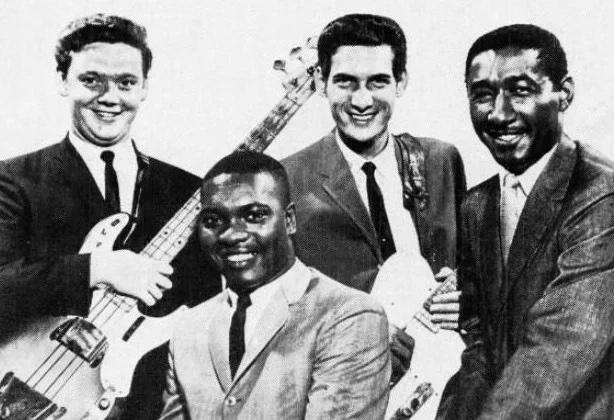
Section Branding
Header Content
The Enduring Legacy Behind Southern Soul Music
Primary Content
In the early 1960s, in places like Memphis, Tenn., and Muscle Shoals, Ala., groups of young Black and white musicians made hit records together in defiance of Jim Crow. In this week's commentary, Salvation South Editor Chuck Reece explains why the significance of Southern soul music goes far beyond its irresistible call to the dance floor.

TRANSCRIPT:
Chuck Reece - Salvation South Editor: In all of my life, few things have mattered to me more than Southern soul music. When you listen to Otis Redding, Sam Day, Wilson Pickett and all the others who pioneered this music in the 1960s, something moves in your gut. Something makes you want to shake and shimmy. Something makes it impossible not to dance.
But the significance of soul music runs far deeper than its relentless call to the dance floor. Soul music symbolizes the South's earliest and bravest moves to reach across the barriers between Black folks and white folks.
Let me take you back to 1962, one year after the beginning of the Freedom Rides that brought Black and white activists together to protest segregation in the Deep South. In '62, four young musicians from Memphis, Tenn., came together to form a band called Booker T. & the M.G.'s. Two of them, keyboardist Booker T. Jones and drummer Al Jackson, were Black. The other two, guitarist Steve Cropper and bassist Lewis Steinberg, were white. They became the house band at a studio on Macklemore Avenue in Memphis called Stax Records. They quickly had their own No. 1 hit, an instrumental called "Green Onions." They laid down the grooves behind "Soul Man" for Sam and Dave. They brought the music behind Otis Redding's "Try a Little Tenderness" and behind Wilson Pickett's "In the Midnight Hour," smack dab in the middle of the Jim Crow era. They laid down grooves that no one had ever heard before. Not in spite of, but because of the fact that they were brave enough to make music together — even though Jim Crow refused to let them sit down in a diner and have coffee together.
At the same time, something similar was happening in North Alabama in a town called Muscle Shoals. Four young white men who were besotted with Black rhythm and blues music — keyboardist Barry Beckett, drummer Roger Hawkins, bassist David Hood and guitarist Jimmie Johnson — came together as a house band at the Fame Recording Studios. In 1967, they wound up backing Aretha Franklin on her first giant hit, "I Never Loved a Man the Way I Love You."
Soul music is one of the South's greatest gifts to the musical culture of the entire world. And it happened because young musicians, Black and white, had the courage to cut records together when most of Southern society condemned what they did. So the next time you listen to Otis or Aretha, remember that those combinations of musicians represented an essential truth about Southern culture, which is this: The things that the world loves best about Southern culture are the things that we've created together — food, music and so many others across the racial lines.
Come visit us at SalvationSouth.com.
Salvation South editor Chuck Reece comments on Southern culture and values in a weekly segment that airs Fridays at 7:45 a.m. during Morning Edition and 4:44 p.m. during All Things Considered on GPB Radio. You can also find them here at GPB.org/Salvation-South and now on your favorite podcast platforms as well.






